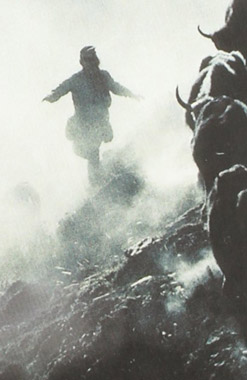
Rushdie's third novel, Shame (1983), which many critics saw as an allegory of the political situation in Pakistan, won the Prix du Meilleur Livre Etranger and was shortlisted for the Booker Prize for Fiction. The critic Malcolm Bradbury acclaimed the novel's achievement in The Modern British Novel (Penguin, 1994): 'a new start for the late-twentieth-century novel.' The novel narrates key events in the history of India through the story of pickle-factory worker Saleem Sinai, one of 1001 children born as India won independence from Britain in 1947. It won the Booker Prize for Fiction, the James Tait Black Memorial Prize (for fiction), an Arts Council Writers' Award and the English-Speaking Union Award, and in 1993 was judged to have been the 'Booker of Bookers', the best novel to have won the Booker Prize for Fiction in the award's 25-year history. His second novel, the acclaimed Midnight's Children, was published in 1981. His first novel, Grimus, was published in 1975. After graduating, he lived with his family who had moved to Pakistan in 1964, and worked briefly in television before returning to England, beginning work as a copywriter for an advertising agency.


He went to school in Bombay and at Rugby in England, and read History at King's College, Cambridge, where he joined the Cambridge Footlights theatre company. Salman Rushdie was born in Bombay (now Mumbai) on 19 June 1947.


 0 kommentar(er)
0 kommentar(er)
